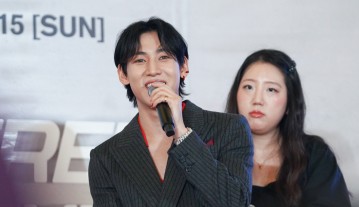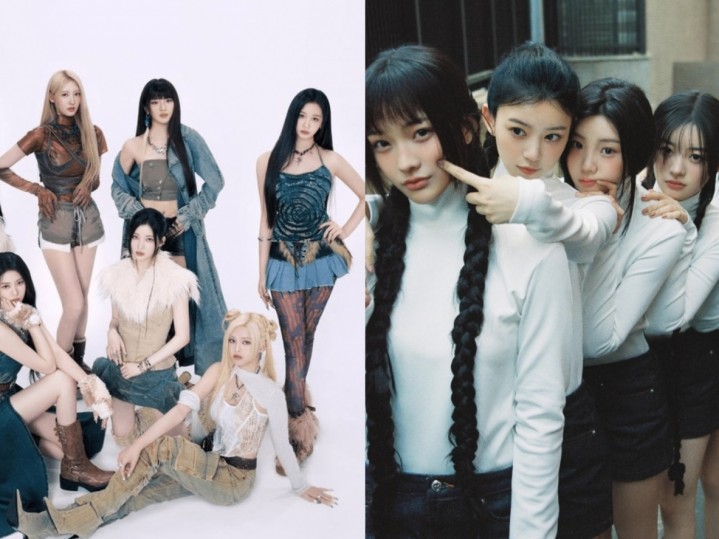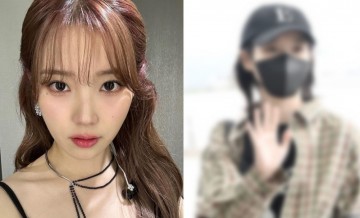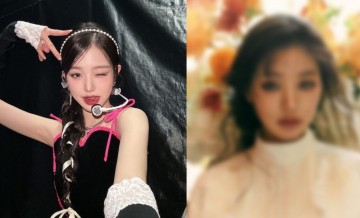K-Pop Through The Eyes Of Industry Leaders: An Interview With Living Language
Welcome to "K-Pop Through the Eyes of Industry Leaders." It's an ongoing KPopStarz series where we talk to leaders in several Korean industries, including education, fashion, entertainment, technology, tourism, e-commerce, and more. It's no secret that the Korean Wave, or Hallyu, is giving Korea more of a spot on the world stage. With that wave continuing to spread, KPopStarz wants to talk to the people leading that charge about how they see Korean pop culture having an influence on their work both inside and beyond Korea's borders.
Today we're talking to Suzanne McQuade. She's an editor at Living Language, a service that helps people worldwide learn languages like Korean from their own homes. We talked about what makes the Korean language so cool, the tools that can make you a great language student, and how a little Korean understanding can go a long way when you're watching your favorite dramas.
KPopStarz: Please tell me a little bit about what you do at Living Language.
Suzanne McQuade: Our job is to take the classroom experience of learning language out of the classroom and put it into the learner's own hands. As an editor, I'll put together the structure of the language course - the lesson plan, really - and then work with the native language writers and reviewers to come up with the best method of fleshing out Korean vocabulary, grammar, and culture.
KPS: What are some of the coolest or most unique parts of the Korean language? What are the biggest challenges with learning the language?
SM: My favorite aspect of Korean is how its alphabet, Hanguel, was designed: each jamo (letter) reflects the position of the teeth and tongue when you say that letter. Just look at the letterㅅ(s): the top where the lines come together shows how your teeth come together to make that sound. Alsoㄱ(g) vs. ㄴ:say those letter and note the position of your tongue as you say them. In ㄱ, the back of your tongue is up really high, and inㄱ, it's down low, just like it looks in those letters.
The biggest challenge with Korean is that it requires a great deal of basic knowledge to start stringing together a sentence. In English, for example, we don't really mark our speech for politeness, and we don't use particles in the same way, but both of these elements are very important in Korean. Teaching even the most basic sentences in Korean, such as "There is a woman," which in Korean uses particles and changes politeness depending on who you're speaking to, requires a lot more explaining and a lot more complexity and nuance than it might in some other languages.
KPS: What kind of qualities make a great language student?
SM: That's easy: dedication. It also helps to let go of the idea that you might embarrass yourself: everyone makes mistakes, so go ahead and give it a try, and don't be afraid to get something wrong a few times before getting it right.
KPS: As Korean pop culture has become more popular worldwide, have you noticed a spike in the number of students who want to learn Korean? Does Living Language try to cater to those fans at all?
SM: We've definitely seen an increase in interest for Korean language over the years, especially among younger people. We try to teach Korean thoroughly and broadly enough that you can benefit from our courses whether you're studying it with an interest in pop culture or wanting to do business there; after all, the themes in pop music are pretty universal!
As I was editing the Korean course, I spent a lot of time watching Korean soap operas and trying to pick up on words without looking at the subtitles. It's amazing what you start to recognize with just a basic knowledge of Korean.
KPS: How important is an understanding of a country and its culture when learning a new language? Can an understanding of Korean pop culture help language students grasp the lessons in a way that other students couldn't?
SM: Absolutely. It's so important to understand culture when learning a language! Just learning some words means nothing if you don't know the context for using them. If you can't manage to visit the country where they speak the language you're learning, you should at least be aware of the cultural context that makes the spoken language function how it does.
This is especially important in learning Korean, which places so much importance on the culture of politeness. And having an understanding of Korean pop culture not only prepares a student culturally for learning the language, but it does something even better: it gives the student true natural language exposure. Korean pop culture fans probably already know way more Korean than they realize!
KPS: What advice would you give to someone who is thinking about trying to learn Korean?
SM: The easiest piece of advice to give anyone wanting to learn a language is just to dive in and keep going. Korean has a lot of tricky stuff to learn at the beginning, but if you keep plowing through, you'll find that you get to a point where it all starts to come together and make sense. And stay immersed: watch Korean soap operas, go to Korean restaurants, and listen to the music. You'd be amazed how much of the language you can pick up just by staying immersed. Our books can show you how it works and help break it down for you, but television, food, and music will help give the language life.
















